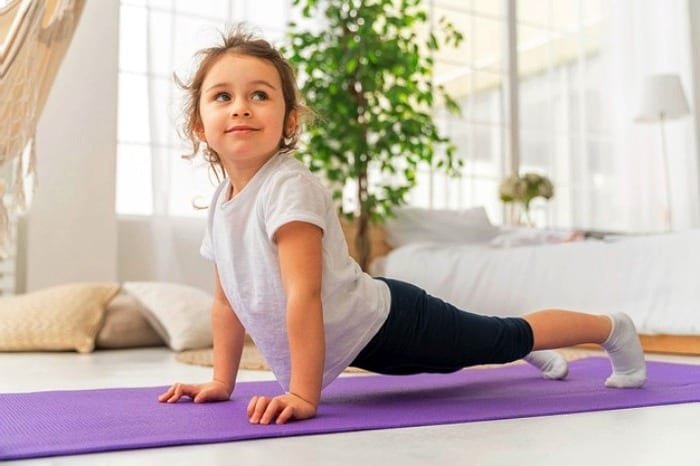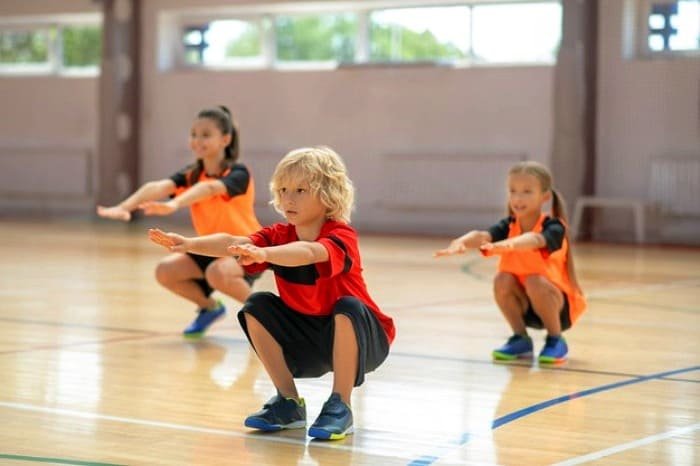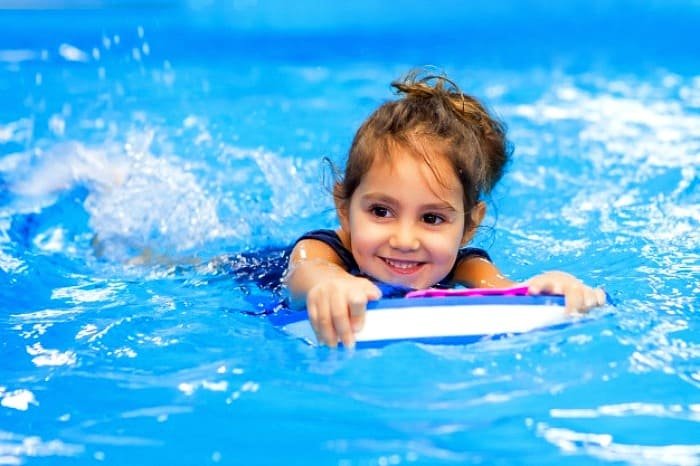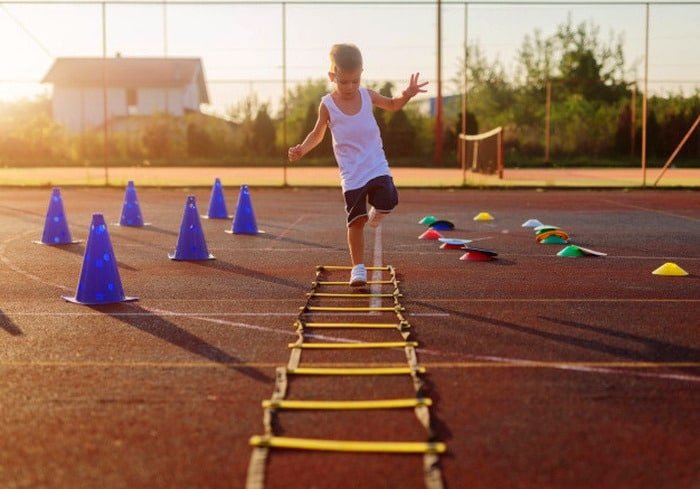Useful Exercises for Hyperactive Children
If you have ever interacted with hyperactive children, the first thing you notice is that they cannot sit still for a few minutes. Research shows that about 30 minutes of daily exercise can significantly reduce symptoms of attention deficit hyperactivity disorder.Hyperactivitycan be reduced.
Parents trying to keep their children away from TV and computers may find this challenging, especially during the cold winter months when outdoor activities are nearly impossible.
Before having hyperactive children exercise daily, introduce them to sports by starting with indoor activities and engaging movement ideas.
Aerobic activities for coordination:
Any typeof aerobic exercisecan have positive effects on hyperactive children to expend their excess energy. However, some types of activities can also improve mental focus.
To achieve better results, select exercises that include aerobic activity and precision. This helps activate brain executive functions, which are linked to improved mental focus in children with hyperactivity.
Ideally, you want your children to play games that enhance coordination and precision. The more complex the game, the more benefit the child can gain.

Some home games meet these criteria:
- Volcanic Ground:You’ve probably played this game before. Imagine that the floor is volcanic and you are only standing on a safe spot. Now, challenge the children to cross the ground without “getting burned.”
- Hopscotch:Use a strip to create hopscotch on a hard surface. Hopscotch helps children recognize numbers while improving their coordination.
- Horse:A gymnasium makes this game safe for children to play indoors.Runningencourages children to improve physical precision while using encouraging words. You can even expand games to include various words or math, depending on your child’s age.
Improving Focus with Martial Arts:
Martial arts like Taekwondo andKung Fucan improve children’s mental focus as well as body physics. Many hyperactive children enjoy learning martial arts because they practice a variety of movements that keep them engaged and active. It’s a form of exercise that anyone can practice at home without equipment. Other sports may offer similar benefits, but indoor practice can be more difficult.
Note:Some experts believe that the worst sports for hyperactive children are rough sports like boxing and martial arts, but there is no consensus. Remember that martial arts may not be suitable for all hyperactive children and may have adverse effects for some, so consult your child’s doctor about this.
Hyperactivity and Movement:
Researchers are exploring reasons for parents to view movement and hyperactivity as a fundamental partnership. Staying active, burning extra energy, and maintaining mental focus improve social skills. Given all the benefits, it is clear that parents should encourage children to exercise whenever possible.
A brain balance program aims to integrate sensory inputs and enhance motor skills through activities designed to improve balance and stability, allowing children to respond more quickly.
Our unique integrated approach helps your child achieve an optimal body and brain function, benefiting from advanced, academic, social, and emotional training. You will be surprised by your child’s physical and academic progress throughout the program.

Therapeutic Nature:
Nature has a very positive effect on children. The more time they spend in a natural environment, the better their ability to focus. Even 20 minutes of exercise on a tree-lined street can improve symptoms.
Engaging in outdoor activities like camping, fishing, or running among trees can help children improve symptoms like attention fatigue and sudden impulse control.
Better Sleep, Aggression Control:
Hyperactive individuals often experience sleep problems, and it has been observed that bad sleep habits can reduce focus. Being physically active can help hyperactive children control their aggression and sleep better.
Exercising helps our body transition between sleep stages and physical fatigue, which can enhance the amount of time spent in deep sleep. Spending thirty minutes climbing a tree or engaging in physical activity can lead to better sleep and reduceddepression,anxietyandstressthroughout the day.
What sports are good?
Aerobic exercises increase the production of neurotransmitters and support the growth of new brain cells, which can enhance executive function. Some of these sports include:
Karate
In hyperactive children, karate helps practice self-control and reduce aggression as routine tasks like bowing to instructors and remaining still during drills assist in self-regulation. Karate boostsself-confidence,and increases focusin these children. In karate, a child must learn not to harm their opponent during practice.
Swimming
Swimming is a very beneficial sport for hyperactive children as it strengthens limbs and muscles, supports bone growth, improves children’s breathing, increases lung capacity, regulates nighttime sleep patterns, enhances self-confidence, and fosters independence, thereby reducing hyperactivity. If your child is afraid of water, start by reducing that fear with water games in the bath or shower.

Soccer
Soccer is a fun, energetic sport loved by hyperactive children. It strengthens the immune system, prevents various diseases, improves heart and vascular function, and helps prevent increases inblood pressureandblood sugar.
Judo
Judo is another helpful sport for hyperactive children because it teaches them how to maintain calm under life’s pressures. This sport also improves physical fitness, increases flexibility and strength, promotes cardiovascular health, enhances focus and memory, and improves daily functioning and activities.
- Gymnastics
- Running
- Cycling
- Walking
- Canoeing
- Jump rope
Team or Individual Sports:
The ideal sport for hyperactive children is one that allows for more individual focus. Many of these sports give athletes the opportunity to compete against others, but they must gain individual experience as part of a team since their individual points often contribute to the overall team score. One of the main benefits of individual sports for hyperactive children is the direct interaction between coach and athlete.
Individual sports offer an educational activity where training is more personalized. It is easier for hyperactive children if there are fewer distractions and the coach is specifically available to them. An athlete with attention deficit hyperactivity disorder (ADHD) may require more time to focus.
While individual sports have special benefits for hyperactive children, there are still some team sports they may enjoy playing:
- Basketball
- Hockey
- Soccer
Sports like basketball, hockey, and soccer keep athletes almost always in motion, providing little downtime.

Low-Impact Sports to Improve Hyperactivity:
- Baseball
- Weightlifting
- Bowling
Benefits of Sports for Hyperactive Children:
- Engaging in sports increases blood flow to the brain and reduces anxiety andirritabilityin hyperactive children and adolescents.
- Exercising helps reduce weight or maintain a balanced weight.
- Sports activities release endorphins in the brain, making people feel energized and calm after exercising.
- Regular sports activities promote mental growth in hyperactive children.
- Sports help expel energy in hyperactive children, serving as a way to release the child’s pent-up energy.
- Exercising increases concentration in hyperactive children because the brain starts releasing chemicals called neurotransmitters. Dopamine is a neurotransmitter that plays an important role in enhancing focus in hyperactive children.
- Exercising strengthens the blood vessels in the brain, which thereby improves thinking power in hyperactive children.
- Exercising enhances the activity of brain areas responsible for thinking and focus.
How Much Should Hyperactive Children Exercise?
Hyperactive children should aim for 60 minutes of moderate to vigorous exercise on all days of the week. If a hyperactive child is interested in walking, a daily 20-minute walk can have a positive effect on them.







